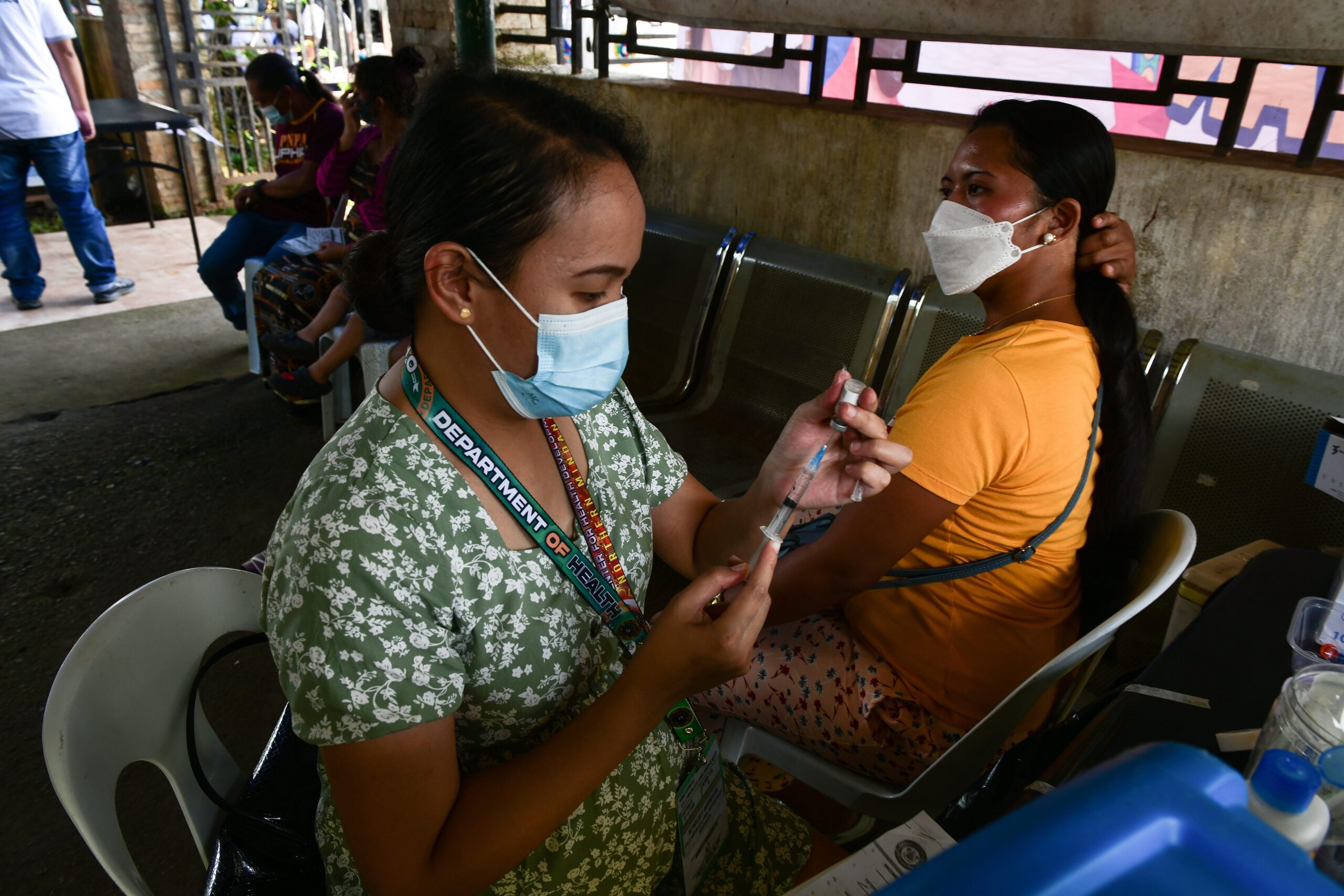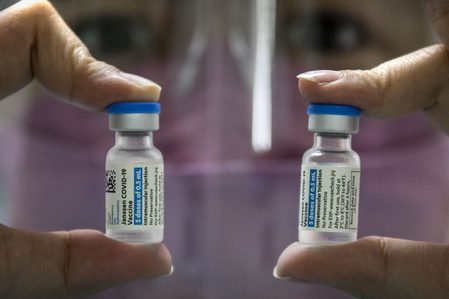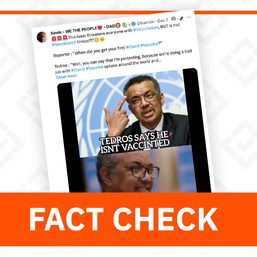SUMMARY
This is AI generated summarization, which may have errors. For context, always refer to the full article.

BUKIDNON, Philippines – Health authorities in a town in Bukidnon are working double time to meet their COVID-19 booster vaccination target amid the hesitancy among senior citizens from indigenous people’s communities.
Talakag health officer Mark Anthony Dano said he was worried they might not hit their 63,000 target population by September 30.
Dano said they had so far inoculated 84% of their target, and were lagging in vaccinating senior citizens, especially the Lumad elderly.
“Kulelat kami sa senior citizens, especially among the lumad (We are way behind, particularly on the vaccination of the Lumad elderly). There is strong resistance to the vaccine from the Lumad senior citizens,” Dano said.
Dano said that, of the 5,300 Lumad seniors in Talakag, only 3,000 had been fully vaccinated, and only 700 had been administered with the first booster shots.
The World Health Organization (WHO) in the Philippines has expressed alarm about the sluggish COVID-19 vaccination rate among senior citizens nationwide, worrying that a surge in the number of cases among the elderly would affect the country’s hospital system.
It says only 6.4 million senior citizens – or 25% of the vulnerable sector – have been fully vaccinated despite efforts by local governments.
At the health center in downtown Talakag, municipal hall employees were busy putting up tarps to raise public awareness about the five-day “Bakunang Bayan” vaccination campaign that started on Monday, September 26.
Nurses and doctors were attending to a small group of residents who came to be vaccinated, but senior citizens were conspicuously absent.
“We have no problem with the younger population. It is a different story [for the elderly], and we are worried about the risks,” Dano said.
He said they tried new approaches, such as offering a P300-meal allowance for every senior, as incentives for vaccination.
Dano said they were also resorting to a house-to-house campaign to get the senior citizens vaccinated or boosted.
“All of these failed. It seems the Lumad elders are so stubborn, they rejected even the meal allowance we offered,” he said.
Talakag is a first-class town in Bukidnon province. Its population of 77,000 residents includes a mix of members of Higaonon and Talaandig tribes.
Dano said misinformation about the COVID-19 vaccines was the main cause of the vaccine hesitancy among the town’s senior citizens.
“The Lumad has this belief that COVID-19 vaccines are harmful to their health. Some of them actually believe they will get sick if they are vaccinated, and there are even those who think they will turn into zombies,” Dano said.
Dano said the Lumad tribal councils in Talakag even issued certificates that “exempted” their members from the COVID-19 vaccination. Health officials, needless to say, do not honor these certificates.
He said they tried everything, including engaging the non-governmental organization Peace Corps which produced a variety of information materials on COVID-19 like posters, tarpaulins, and comics in Higaonon dialect.
The materials were distributed in the villages of Tikalaan, Indulang, Lantud, and San Rafael, which have mostly Higaonon residents.
The NGO strategy is that the key to overcoming vaccine hesitancy among the lumad is a Higaonon-centered and Higaonon-led communication campaign.
Peace Crops president Robert de la Serna said they were able to gain support and participation by featuring in the tarpaulins and posters Higaonon leaders who had been inoculated.
De la Serna said the Higaonon message in the materials is simple: the vaccines are safe.
Department of Health (DOH) representative Jasper Ola said health officials used Higaonon leaders effectively in their campaign in Malitbog, another municipality of Bukidnon.
This, aside from the one sack of rice they gave as an incentive for each Higaonon to encourage them to go to the health centers, according to Ola.
“Once you earn the trust of their leaders, the rest of the Higaonon residents will follow,” Ola said.
Higaonon leader Rose Undag said the resistance was strong among the elders because the idea of vaccination was not part of their oral history and tradition.
“We do not even have a word for vaccination in our dialect. Our elders do not understand its importance to their health,” Undag said.
She said Higaonon people would resort to medicinal plants when they got sick with illness, trusting Magbabaya (the Supreme Creator) would heal them.
Undag said her people would only turn to modern medicine as their last resort.
Undag said when the COVID-19 pandemic ravaged urban cities, many Higaonon communities refrained from socializing with the people living in urban areas.
“The elders were lucky that most of the local government units implemented strict quarantine measures, “ said Undag, who is fully vaccinated and boosted.
Young Higaonons, meanwhile, are also reluctant because of the usual side effects of the COVID-19 inoculation, such as fevers and chills, Undag said.
She said the young Higaonons, mostly working on the farms, didn’t like to get sick.
“They cannot afford to be absent from their work even for a single day. It would mean missed meals for their families,” she said. – Rappler.com
This report was produced through a grant from the Philippine Press Institute under the auspices of the Hanns Seidel Foundation. The theme of the journalism fellowship is governance and health.
Add a comment
How does this make you feel?







![[Rappler’s Best] US does propaganda? Of course.](https://www.rappler.com/tachyon/2024/06/US-does-propaganda-Of-course-june-17-2024.jpg?resize=257%2C257&crop=236px%2C0px%2C720px%2C720px)






![[ANALYSIS] Hippocrates and hypocrites](https://www.rappler.com/tachyon/2024/07/TL-medical-ethics-june-27-2024.jpg?resize=257%2C257&crop=314px%2C0px%2C720px%2C720px)












There are no comments yet. Add your comment to start the conversation.